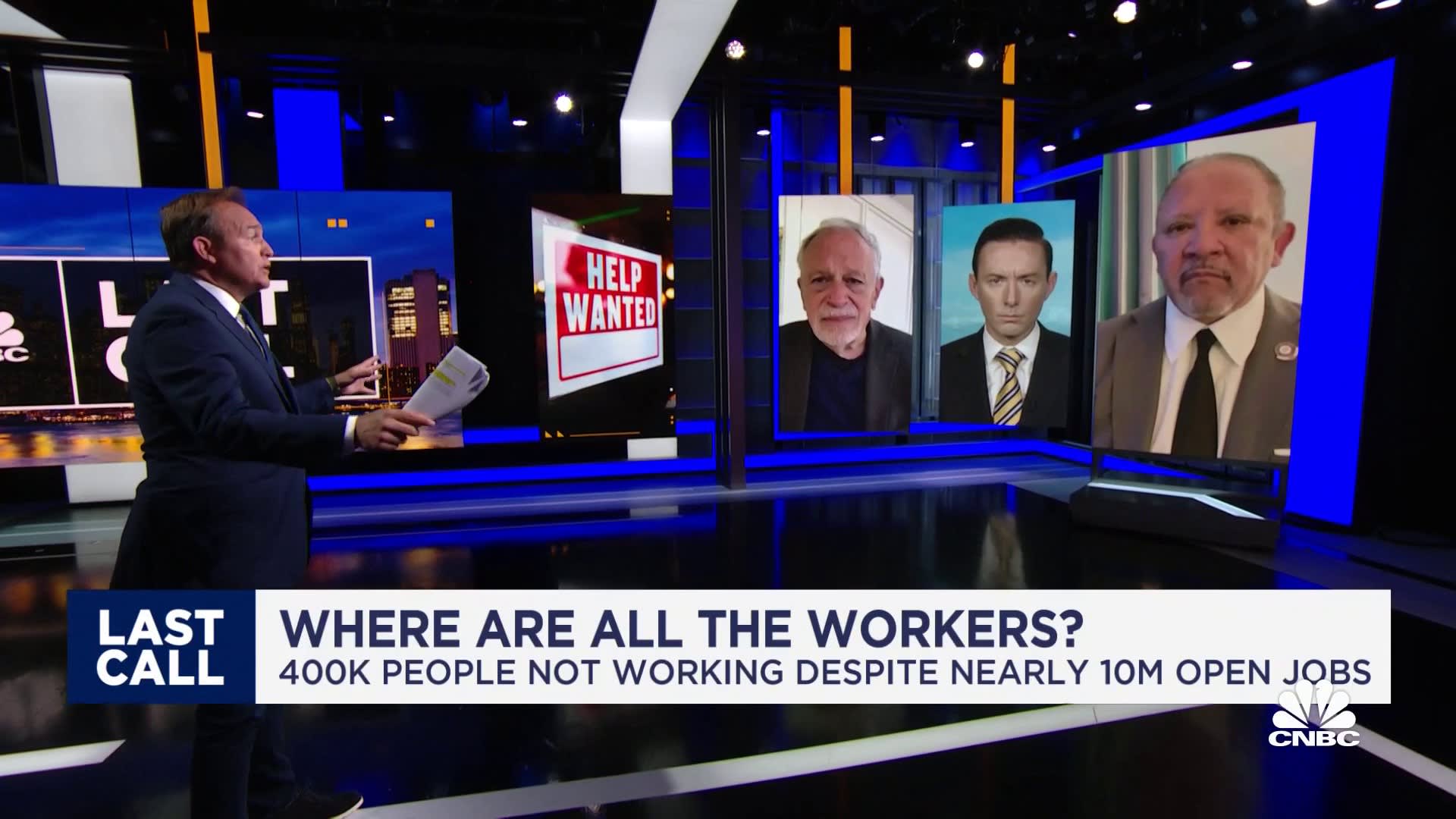U.S. Vice President and Democratic presidential candidate Kamala Harris speaks at an event at the Hendrick Center for Automotive Excellence in Raleigh, North Carolina, U.S., August 16, 2024.
Jonathan Drake | Reuters
Vice President Kamala Harris on Friday delivered an economic policy pitch aimed to appeal to middle-class voters by focusing on lowering the costs of food, housing, health care and childcare.
In a speech in Raleigh, North Carolina, the Democratic presidential nominee sketched a vision of what she described as an “opportunity economy,” with basic financial security at its core.
Her plan would impose a federal ban on price gouging on groceries, enact a new $6,000 child tax credit for families with newborn children and give first-time home buyers $25,000 in down-payment support, among a slew of other proposals.
Harris framed it in stark contrast to the proposals put forward by her rival, former President Donald Trump.
She blasted the Republican nominee’s support for sweeping tariffs on imported goods as a “Trump tax,” while accusing him of seeking to cut taxes on billionaires and corporations.
“I think that if you want to know who someone cares about, look who they fight for,” Harris said.
While still light on specific details, her plans have already garnered fierce criticism from Republicans and economic analysts who have warned that they veer toward government price fixing.
“Having the government set prices is a really, really big mistake,” said Kevin Hassett, a top economic advisor in the Trump White House, during a press call earlier Friday.
The nonprofit Committee for a Responsible Federal Budget, meanwhile, estimated that the policies in Harris’ economic plan would raise deficits by $1.7 trillion over the next 10 years.
Friday’s address was Harris’ first policy speech since she took over from President Joe Biden following his withdrawal from the race last month.
With less than 90 days until Election Day, Harris is working to take credit for the Biden administration’s economic accomplishments, while trying to flip the script on a key issue where her predecessor got consistently low marks.
Here’s what else her economic plan includes, according to her campaign.
Groceries and food
In an effort to tackle the stubbornly high price of groceries, Harris will work with Congress to advance the first-ever federal ban on “corporate price-gouging” on food and groceries.
This would include setting “clear rules of the road” so that corporations “can’t unfairly exploit consumers to run up excessive corporate profits” on grocery staples, according to the fact sheet.
To investigate and penalize alleged violations, Harris would empower the Federal Trade Commission and state attorneys general.
A Harris administration would also take an aggressive regulatory approach to proposed mergers and consolidation among the biggest food producers.
Affordable housing and rent
Harris’ plan would help cash-strapped renters by blocking data firms from hiking lease rates, and by preventing Wall Street investors from buying homes in bulk to resell at a premium.
U.S. President Joe Biden raises the hand of Vice President Kamala Harris, during an event on Medicare drug price negotiations, in Prince George’s County, Maryland, U.S., August 15, 2024.
Ken Cedeno | Reuters
Harris will also call for the U.S. to construct 3 million new housing units over the next four years. In order to facilitate that, she will call for new tax incentives for builders who construct “starter homes.”
Any changes to the tax code require congressional approval, and depend heavily on which party controls the House and Senate.
As the supply of entry-level homes expanded, the Harris plan would “provide working families who have paid their rent on time for two years and are buying their first home up to $25,000 in down-payment assistance, with more generous support for first-generation homeowners,” according to the fact sheet.
Health-care costs
Harris would seek to expand the Biden administration’s landmark $35 price cap on insulin for Medicare recipients to cover insulin for all Americans, not just the elderly.
US President Joe Biden along with vice president Kamala Harris (not seen) and North Carolina governor Roy Cooper (not seen) delivers remarks about healthcare in Raleigh, North Carolina, United States on March 26, 2024.
Peter Zay | Anadolu | Getty Images
Similar to her cost-cutting plans for the food industry, Harris’ health-care policy relies in part on stiffer regulations and strict antitrust enforcement.
The plan calls for “cracking down on pharmaceutical companies who block competition and abusive practices by pharmaceutical middlemen,” according to the Harris campaign.
Tax cuts
Restoring the expanded child tax credits that were first introduced during the Covid pandemic is a longstanding goal of the Biden administration, and one that Harris will take up if she is elected president.

She will also go one step further, and propose expanded tax relief of up to $6,000 for families with a newborn.
The Harris campaign calls this a “year when many family’s expenses are highest—with cribs, diapers, car seats and more.” It also notes that many parents who do not have access to paid leave are forced to choose between spending time with their baby and working enough hours to make ends meet.
The stakes
After just three weeks on the campaign trail, Harris has erased the polling advantage that Trump held over Biden.
But the vice president has largely steered clear of policy specifics, choosing instead to draw contrasts with Trump.
With her Tar Heel State address, Harris began to articulate a vision for the economy that builds on — and in some ways pivots away from — the Biden’s administration’s economic record.
On Thursday, Harris and Biden appeared together in Maryland to tout an agreement with pharmaceutical companies to lower the cost of the 10 priciest prescription drugs under Medicare.
U.S. President Joe Biden embraces Vice President Kamala Harris at an event on Medicare drug price negotiations, in Prince George’s County, Maryland, U.S., August 15, 2024.
Elizabeth Frantz | Reuters
The landmark negotiations — enabled through Biden’s centerpiece spending legislation, the Inflation Reduction Act — will lead to around $6 billion in net savings for Medicare when they officially go into effect in 2026, according to the government.
The vice president’s speech came just two days after Trump gave his own economy-focused speech in North Carolina.
Speaking in Asheville, Trump fired off personal attacks at Harris while blaming her for the high consumer prices that Biden has spent much of his presidency working to reverse.
Recent polls suggest the state that Trump won in both the 2016 and 2020 presidential elections is now within reach for Harris in 2024.
A new round of battleground state poll results released Wednesday by the Cook Political Report showed Harris leading Trump in North Carolina by 1 percentage point, 48 – 47, still well within the survey’s margin of error.

